Buyer’s Guide: Which Ukulele is right for you?
The ukulele has seen a steady rise in popularity over the past few years. Thanks to many exceptional artists around the globe, it’s come a long way from being viewed as a toy instrument. If you’re thinking about learning to play the ukulele or are simply interested in learning more about the “tiny guitar”, this guide is for you.
Note: This article was originally published in German on bonedo.de.
Quick facts: Ukulele
Where was the ukulele invented?
The ukulele’s direct predecessor is the cavaquinho, which was developed in Portugal and brought to Hawaii in 1879. After further developments, the ukulele was introduced to the United States and presented to a larger audience for the first time in 1915.
Who invented the ukulele?
The Portuguese immigrant João Fernandez brought the ukulele to Hawaii. Other notable contributors include the woodworkers and musicians Manuel Nunes, Jose do Espirito Santo, and Augusto Dias.
What does “ukulele” mean?
The literal translation of the word “ukulele” is “jumping flea”.
Is the uke really that popular?
Yes! Perhaps the most popular uke-driven song ever is Israel Kamakawiwo’ole’s version of “Over The Rainbow”, which sold over four million digital copies. Other famous people who are known to have played the ukulele include Billie Eilish Ryan Gosling, Dwayne “The Rock” Johnson, and Marilyn Monroe.
Ukulele sizes and tunings
If you’re just beginning to get into the world of ukuleles and are thinking about buying your first instrument, you’ll inevitably come across various models, shapes, sizes, and tunings. So we’ll start by giving you an overview of the various available types of ukes. But don’t worry – we’ll cover each model in depth later on.
Overview: Different sizes of ukuleles
| Model | Scale | Overall length | Tuning |
|---|---|---|---|
| Sopranino | ca. 28 cm | ca. 40 cm | d’-g’-b’-e’ |
| Soprano | ca. 35 cm | ca. 55 cm | g’-c’-e’-a’ / a’-d’-f#-b’ |
| Concert | ca. 38.5 cm | ca. 63 cm | g’-c’-e’-a’ / a’-d’-f#-b’ |
| Tenor | ca. 43 cm | ca. 66 cm | g’-c’-e’-a’ / d’-g-b-e’ / a’d’f#-b |
| Baritone | ca. 50 cm | ca. 77 cm | d’-g’-b’-e’ |
| Bass | ca. 52 cm | ca. 75 cm | e’-a-d-g |
How is the scale measured and why is it important?
The term “scale” describes the length of the vibrating section of the strings, e.g. the length of the strings from the nut to the bridge. There are several reasons why the scale matters. The most important one is: The scale directly affects the sound and tuning of the instrument.
How are the size and tuning of a ukulele related?
Simply put: The size of a ukulele directly affects its sound. To bring out these differences in sound, models of various sizes are tuned differently.
Which tunings are possible?
The most common tuning is the C tuning (G-C-E-A), but the D tuning is also an option. While tuning remains a hotly debated topic, there’s actually no single “correct” way – it comes down to personal taste in the end.
One peculiarity of the uke is the so-called “reentrant tuning”. In contrast to the strings of a guitar, which are ordered in sequence from the lowest to the highest pitch, the G string of a ukulele sounds higher than the C string that follows it. This is an important part of the ukulele’s characteristic sound.
That said, various sets of strings are now available for all sizes of ukuleles. So-called Low-G sets include a G string that’s tuned an octave lower than normal. This expands the range of the instrument downwards by a fourth (5 semitones) and is especially popular for solo playing. It’s also a great way to get a lower, more full-bodied sound out of your uke. However, most ukuleles are delivered with standard High-G strings.
Different materials such as nylon or fluorocarbon differ in density and tensile force, which affects the sound of the instrument. Be sure to try a variety of strings from different manufacturers.
How to tune a ukulele
If you’re not sure where to start, check out this video guide to tuning your uke.
You are currently viewing a placeholder content from YouTube. To access the actual content, click the button below. Please note that doing so will share data with third-party providers.
Which wood is the best for ukuleles?
The good news is that the type of wood doesn’t really matter that much. Ukuleles are made from many different kinds of wood, with these being the most popular ones:
- Mahogany
- Spruce
- Cedar
Laminate or solid wood – what’s the difference?
| Solid wood instruments | Laminate instruments |
|---|---|
| Nuanced, well-rounded sound | Often cheaper |
| Requires break-in period | Good sound, but less nuanced than solid wood |
| Comparatively expensive |
At first glance, there are hardly any visual differences between laminate and solid wood. It’s clearly a myth that all instruments made from laminate feel and sound cheap!
Now you know which wood and sizes are available. Still can’t decide which model you should buy? Don’t worry! Here’s an overview of the various models available on the market today.
The standard: the soprano ukulele
The soprano variant is what most people think of when they hear the word “ukulele”, so it can be thought of as the standard uke.
Who is the soprano ukulele suitable for?
The soprano ukulele is especially good for beginners looking to learn the first chords, and for everyone who’s looking for a clear, piercing, present sound.
| Advantages | Disadvantages |
|---|---|
| Relatively small | Tight chords can be difficult to play |
| Notes are spaced closely | Somewhat impure intonation due to the short scale |
| Easy to play for beginners | Short sustain |
| Clear, pure sound | Limited range |
| Fast attack |
Recommendations: Soprano ukuleles under 100 Euros – perfect for beginners
Harley Benton Hawaii Koa Soprano (available at Thomann*)

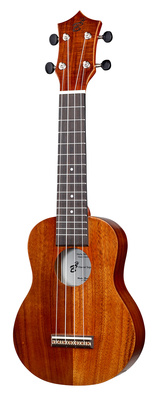
Harley Benton Ukulele Pack Soprano (available at Thomann*)

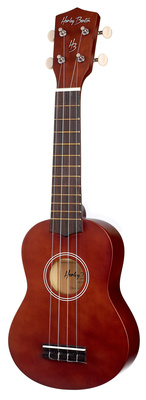
Baton Rouge V2-S (available at Thomann*)
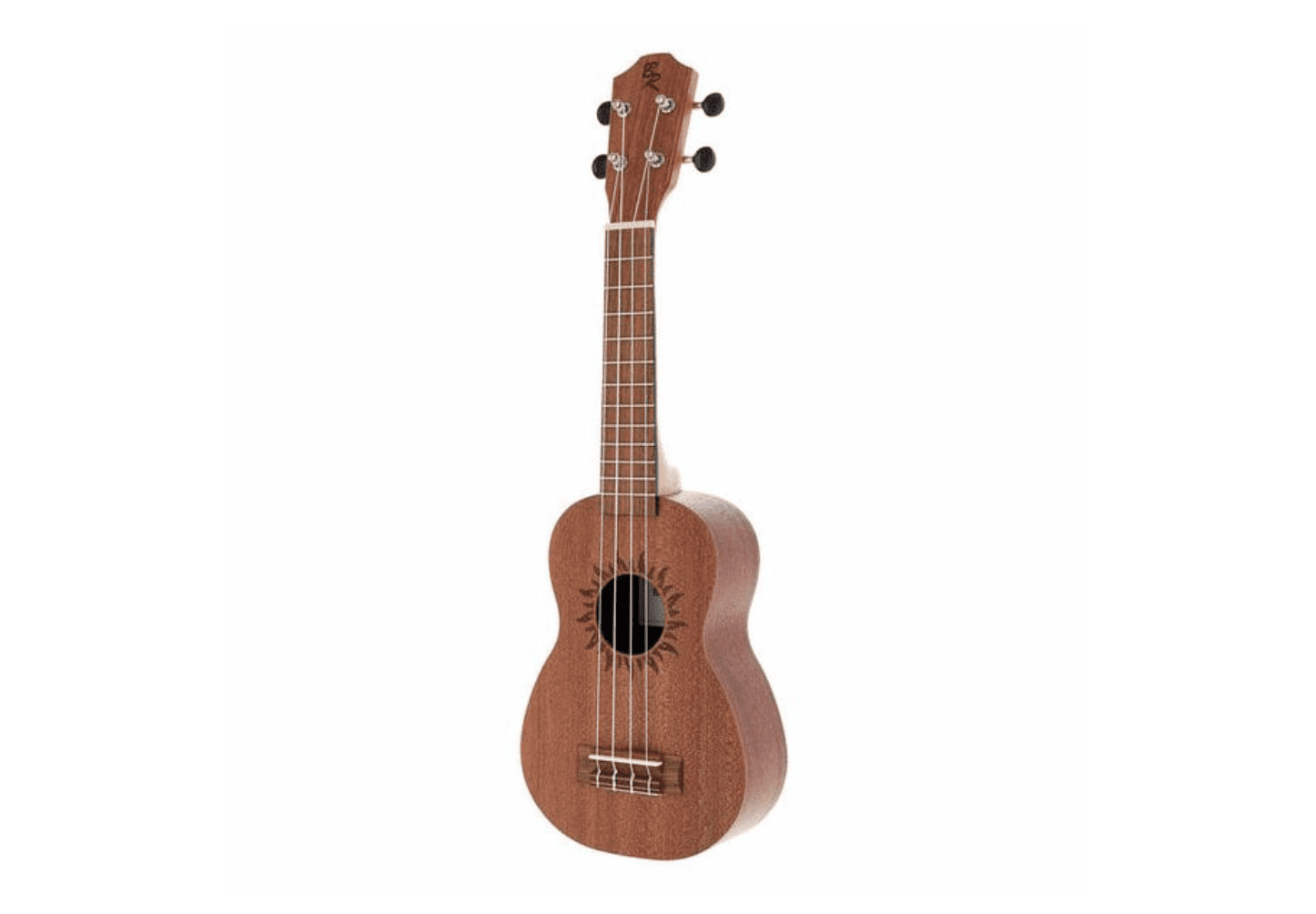
Recommendations: Soprano ukuleles between 150 and 300 Euros – for ambitious players
Cordoba 20SM Soprano Ukulele (available at Thomann*)

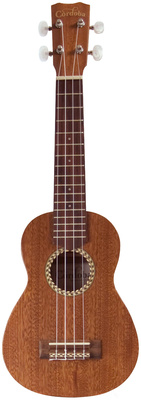
Islander by Kanilea MSS-4 Soprano (available at Thomann*)

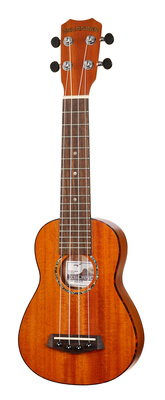
The concert ukulele – the perfect compromise?
Admittedly, calling the concert ukulele a “compromise” doesn’t really do it justice. But it does nicely cover the middle ground between the soprano and tenor ukuleles.
Who is the concert ukulele suitable for?
The concert uke is suitable for all players, except maybe for kids. Due to its longer scale, small children could find certain chords difficult to reach.
| Advantages | Disadvantages |
|---|---|
| Comfortable to play | Larger and bulkier than the soprano ukulele |
| Better intonation than the soprano ukulele | Less suitable for children |
| Typical ukulele sound despite the longer scale | |
| Well-balanced sound | |
| Wider range (usually 18 frets) |
Recommendations: Concert ukuleles under 100 Euros – allrounders for a small price
Harley Benton UK-10S (available at Thomann*)

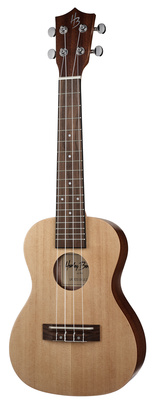
Baton Rouge V2-C sun (available at Thomann*)

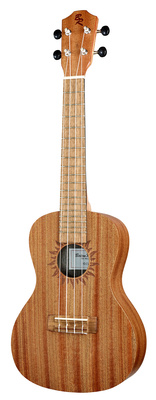
Harley Benton Hawaii Concert Spruce Tattoo (available at Thomann*)

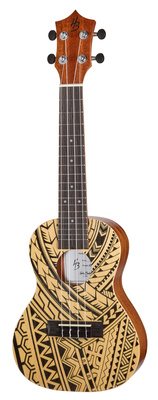
Harley Benton Hawaii Cedar Concert (available at Thomann*)

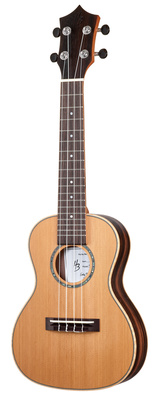
Recommendations: Concert ukuleles up to 300 Euros
Harley Benton Hawaii Koa Concert Ukulele (available at Thomann*)

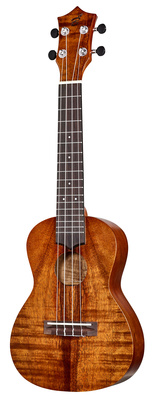
Fender Zuma Concert Ukulele (available at Thomann*)

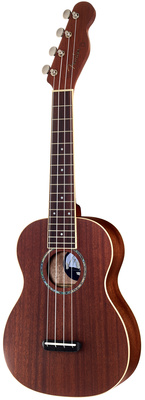
Ortega RUWN-CE Walnut (available at Thomann*)

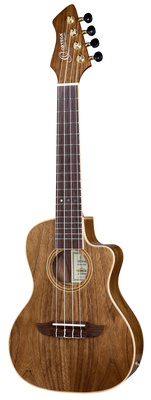
The tenor ukulele – not for small hands?
The tenor ukulele is even larger than the concert uke and a bit more difficult to play. This means that it isn’t an ideal choice for beginners with little or no experience playing stringed instruments.
| Advantages | Disadvantages |
|---|---|
| Clean intonation thanks to the relatively long scale | Chords with larger intervals can be difficult to play |
| Wide range | Difficult to play for beginners |
| Typical ukulele sound despite the longer scale | |
| Good playability in the upper registers |
Who is the tenor ukulele suitable for?
The tenor ukulele is a great choice for advanced uke players who play sophisticated arrangements and need access to a wider range.
Recommendations: Tenor ukuleles under 100 Euros – perfect for making the switch
Harley Benton Kahuna CLU-50T (available at Thomann*)

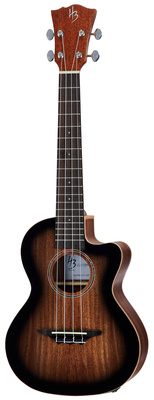
Baton Rouge V2-T sun (available at Thomann*)

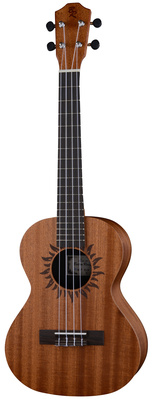
Cascha Premium Mahagoni Tenor Bundle (available at Thomann*)

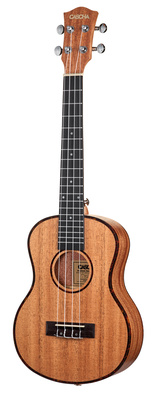
Harley Benton Hawaii Cedar Tenor (available at Thomann*)

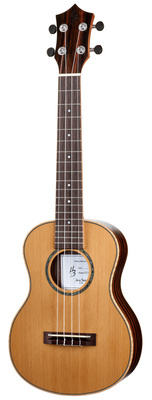
Baritone ukuleles: Is the hype justified, or is it just a fad?
The baritone ukulele has recently seen a rise in popularity, mostly due to the fact that its similarity to a regular acoustic guitar makes switching easy.
| Advantages | Disadvantages |
|---|---|
| Full-bodied bass | No typical ukulele sound |
| Sound and size are similar to a guitar | |
| Great alternative to a travel guitar |
Who is the baritone ukulele suitable for?
The size and playing feel of a baritone ukulele resemble a nylon-string guitar. For this reason, it’s a great choice for switching back and forth between guitar and uke, or as an alternative to a travel guitar.
Thanks to the D-G-B-E tuning, which is the same as the top four strings of a guitar, you can even use standard guitar fingerings – albeit with four strings instead of six.
That said, we wouldn’t recommend the baritone uke to beginners.
Recommendations: Baritone ukuleles from under 100 Euros to 300 Euros
Ortega RU5-BA Baritone-Ukulele (available at Thomann*)

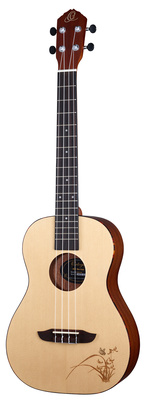
Baton Rouge V2-B sun (available at Thomann*)

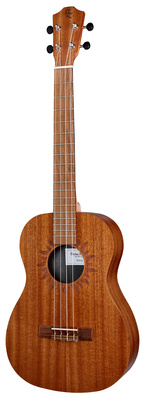
Thomann Baritone Ukulele De Luxe (available at Thomann*)

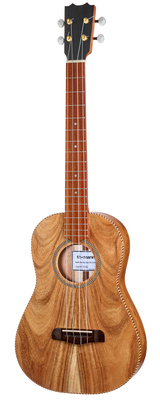
Sopranino ukulele: Small but mighty
The sopranino ukulele is the smallest type of uke and clearly has a charm of its own in terms of sound, playing feel, and looks. However, it’s quite difficult to play due to its short scale.
| Advantages | Disadvantages |
|---|---|
| Looks pretty cool 😉 | Difficult to play due to the short scale |
| Very unique sound characteristics |
Who is the sopranino ukulele suitable for?
The sopranino ukulele is especially useful as an additional color in an ensemble. But if you put in the effort to train your fingers and go beyond standard fingerings, you could absolutely play a whole solo show on a sopranino ukulele.
Conclusion: Which ukulele is right for me?
Like we said in the beginning: choosing between the different sizes and models of ukes isn’t easy. In case you still can’t decide, we’ve summed up some of the most important points for you:
Are you looking for …
… a beginner’s ukulele?
Soprano and concert ukes are great choices for beginners. If you have big hands, a concert ukulele might be easier to play for you.
… a ukulele for children?
Without a doubt, the standard soprano uke is the best choice for kids.
… a ukulele for more advanced players?
If you’ve been playing for a while and have mastered the basics, some of the more exotic types of uke can be a great way to expand your sonic palette. Just take your pick from the various models available.
… a ukulele for guitar players?
If you’re a guitar player looking to get into ukuleles, a baritone uke can be a great choice. It’s not too far from a guitar and many fingerings are the same.
How much should a good ukulele cost?
If you’re thinking about learning ukulele, but don’t have a large budget, we’ve got great news: a good uke doesn’t have to be expensive. Especially for beginners, a ukulele for less than 100 Euros can be a great choice. And you don’t have to spend a fortune on accessories right away – just add them later, when you’re sure that you enjoy playing the ukulele.
Accessories: What do you really need?
When you’re just starting out, there’s no need to invest in a lot of accessories – with one exception: good strings, like these, for example:
Aquila Tenor High-G Super Nylgut (available at Thomann*)

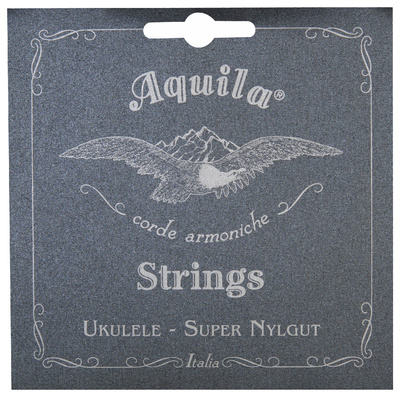
Learning ukulele: The first steps
So you’ve found and bought the perfect uke, but it doesn’t sound quite like you were expecting? To help you make the most of your new instruments, we’d like to share a few tips.
Can everyone learn to play ukulele?
Yes! No matter the age, everyone can learn to play the ukulele. All it takes is the right instrument, and maybe a songbook or some instructional videos.
Do I have to learn guitar before I can play ukulele?
No, you don’t have to have any experience playing stringed instruments. As a matter of fact, the opposite is true. Many guitar players struggle to play uke at first because it feels quite different and a couple of strings are “missing”.
Why should I learn to play ukulele?
There are many reasons for learning to play uke. First and foremost, you’ll be the star of any party. Other reasons include:
- Making music keeps your brain engaged and makes you happy!
- Playing uke keeps your fingers in shape.
- Taylor Swift and Ryan Gosling do it! 😉
How to start: online, with a book, or with a teacher?
Obviously, you’ll probably learn faster if you’ve got a good teacher. If you have the time and budget and can find a great teacher in your area, we’d recommend real-life lessons over online classes or videos.
Luckily, however, the uke is an instrument that you can also learn to play without a teacher. There are many great online courses and videos out there, and some of them are even free. Compared with instruction books, they have the advantage that you can clearly see how to play various chords. In many cases, videos are easier to understand and more fun than books.
More information
Videos
You are currently viewing a placeholder content from YouTube. To access the actual content, click the button below. Please note that doing so will share data with third-party providers.
You are currently viewing a placeholder content from YouTube. To access the actual content, click the button below. Please note that doing so will share data with third-party providers.
You are currently viewing a placeholder content from YouTube. To access the actual content, click the button below. Please note that doing so will share data with third-party providers.
* This post contains affiliate links and/or widgets. When you buy a product via our affiliate partner, we receive a small commission that helps support what we do. Don’t worry, you pay the same price. Thanks for your support!
2 responses to “Buyer’s Guide: Which Ukulele is right for you?”

 3,6 / 5,0 |
3,6 / 5,0 | 

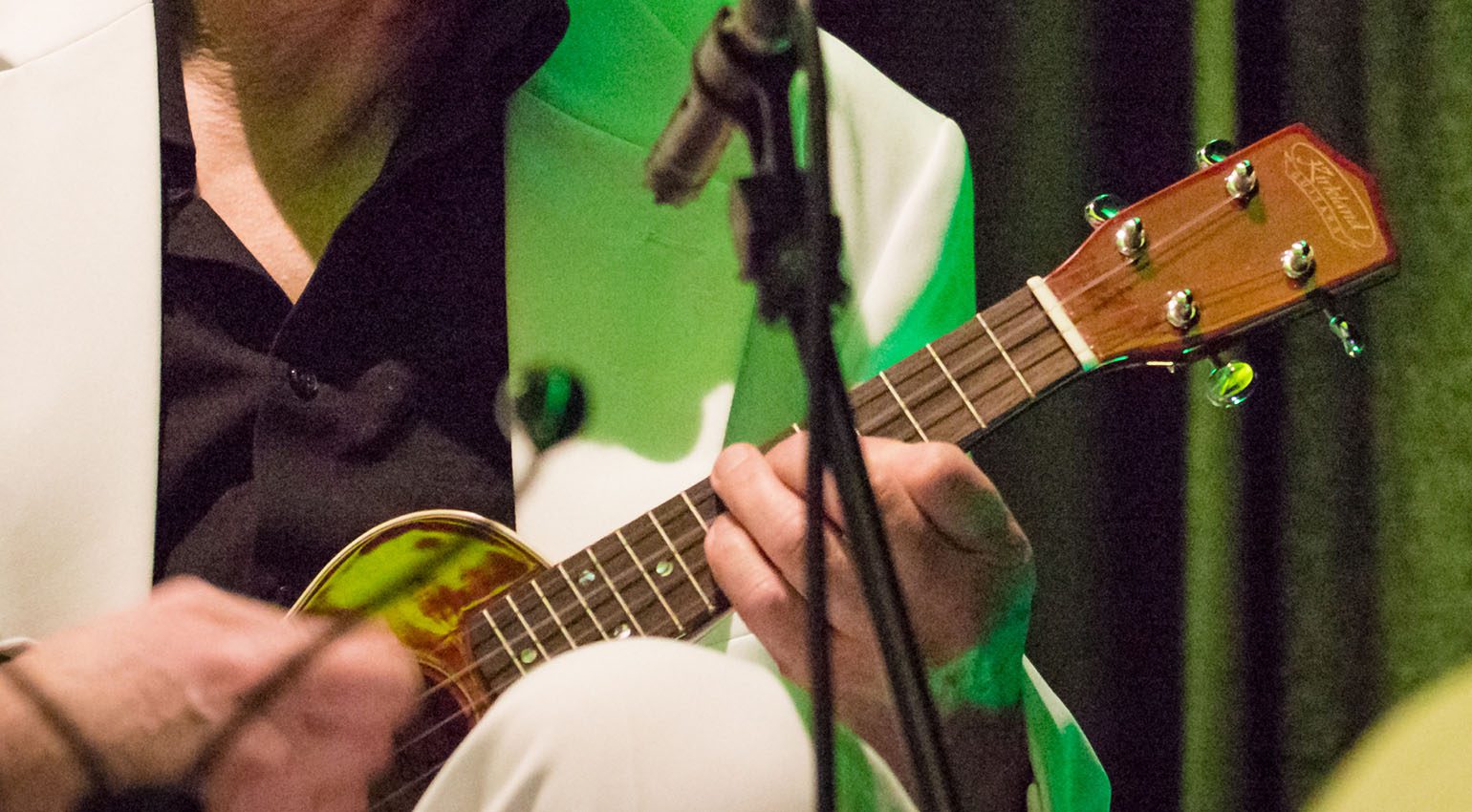

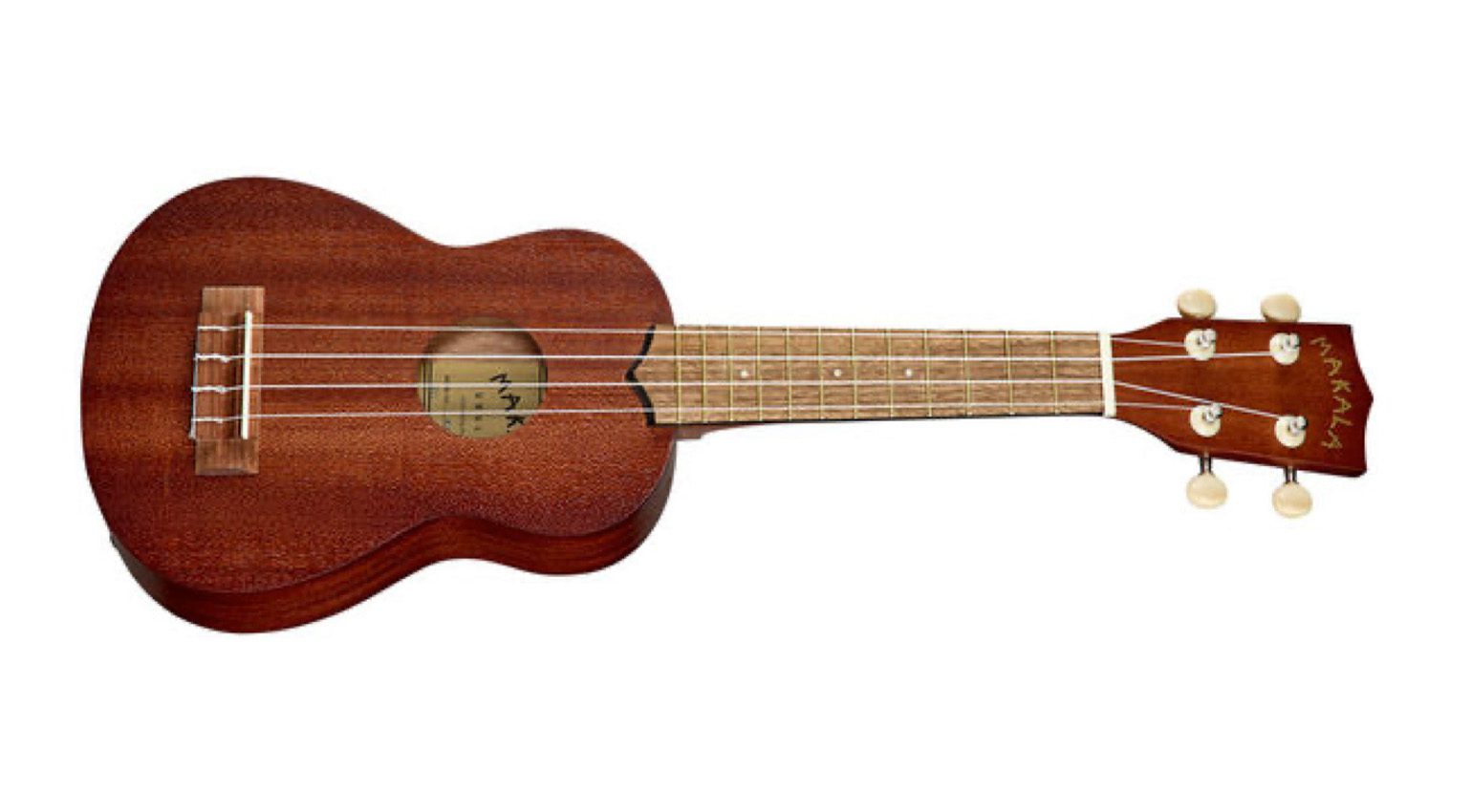
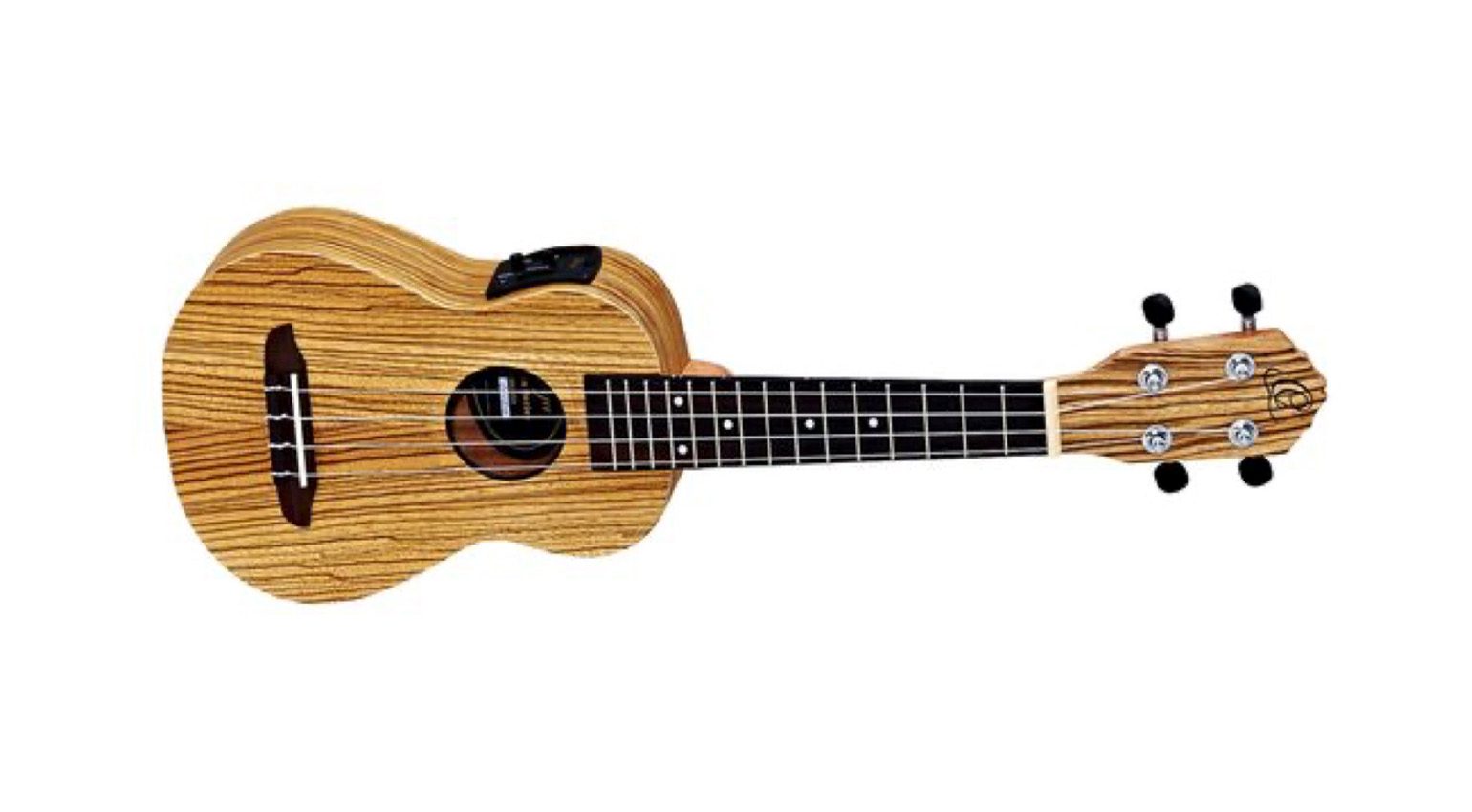
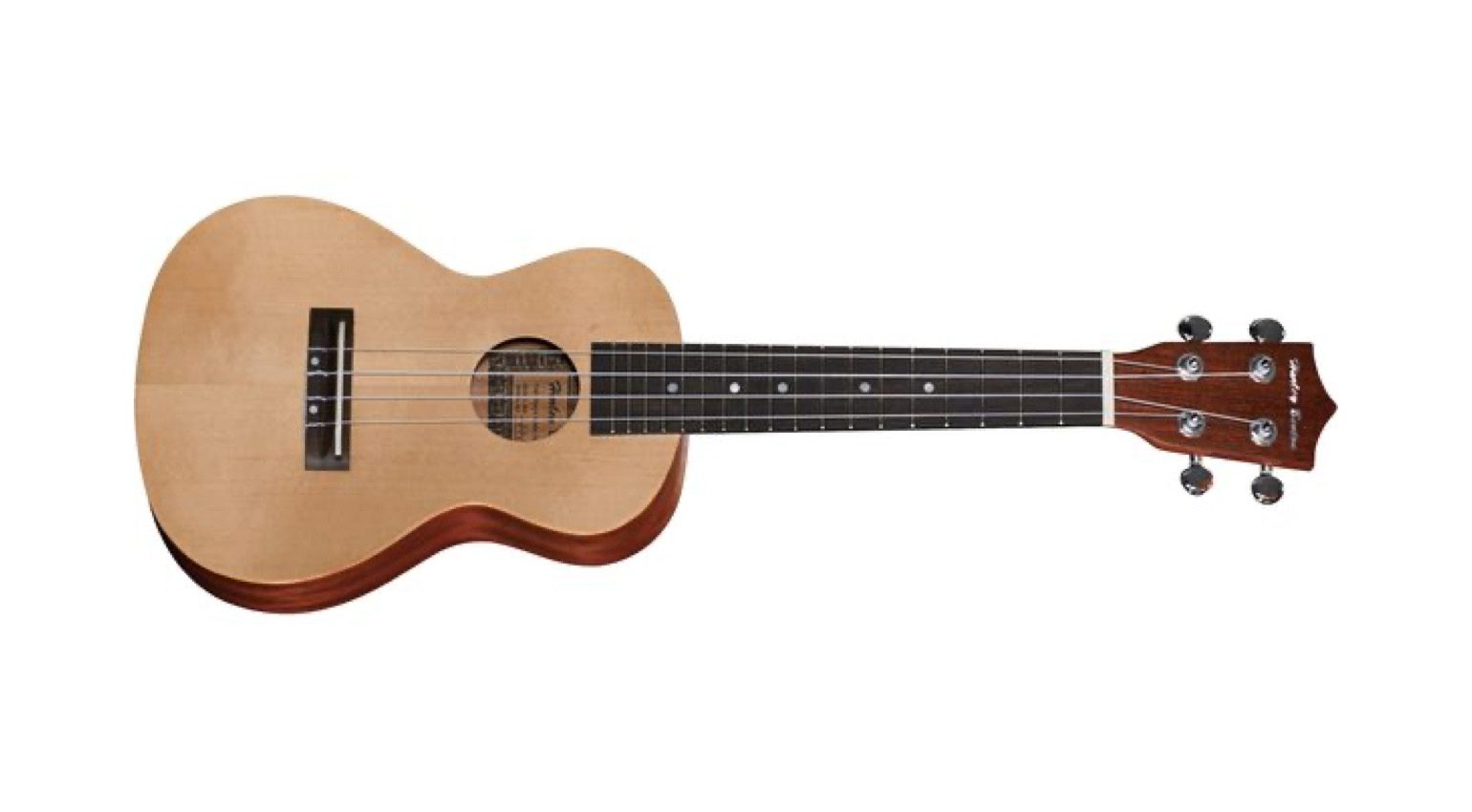
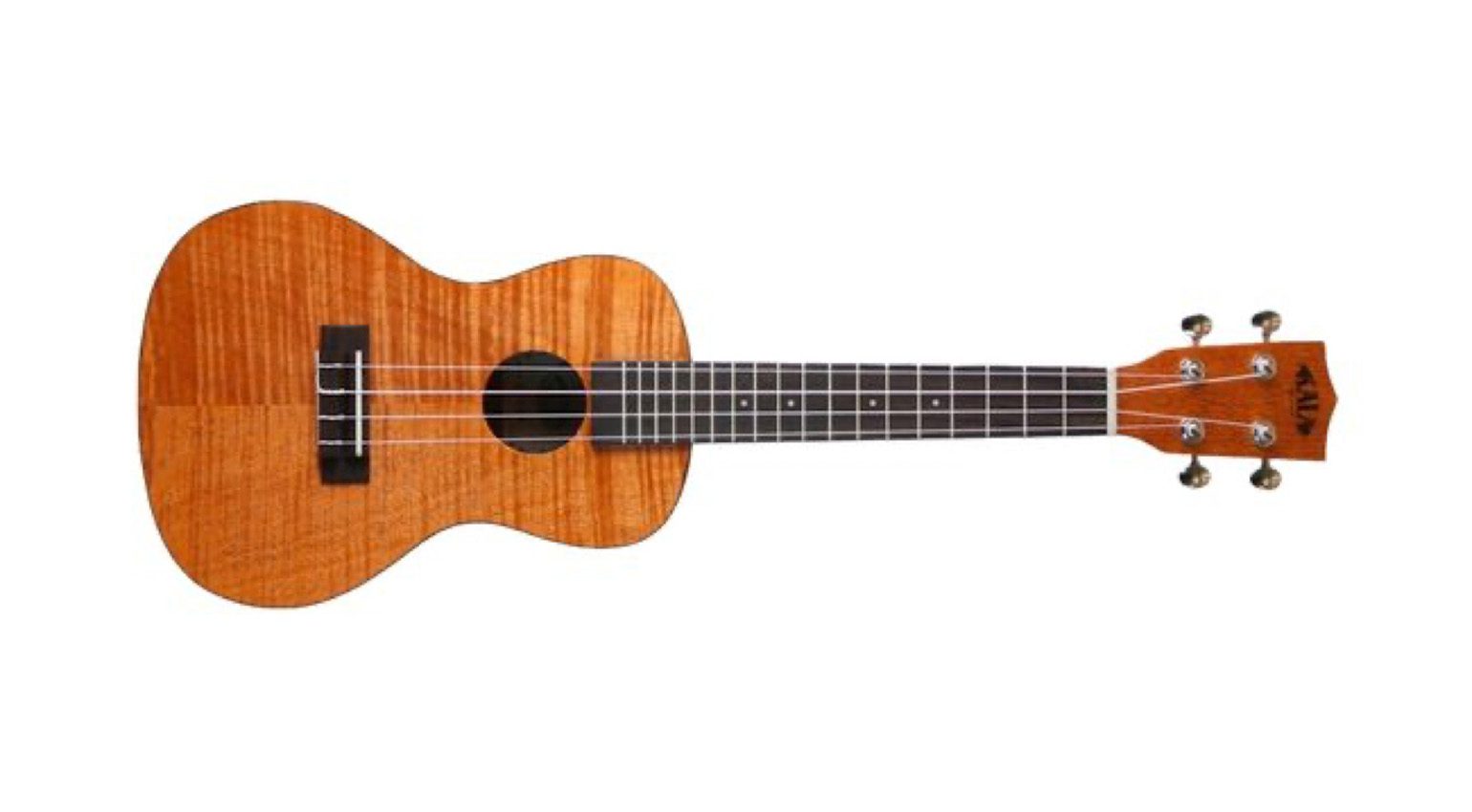
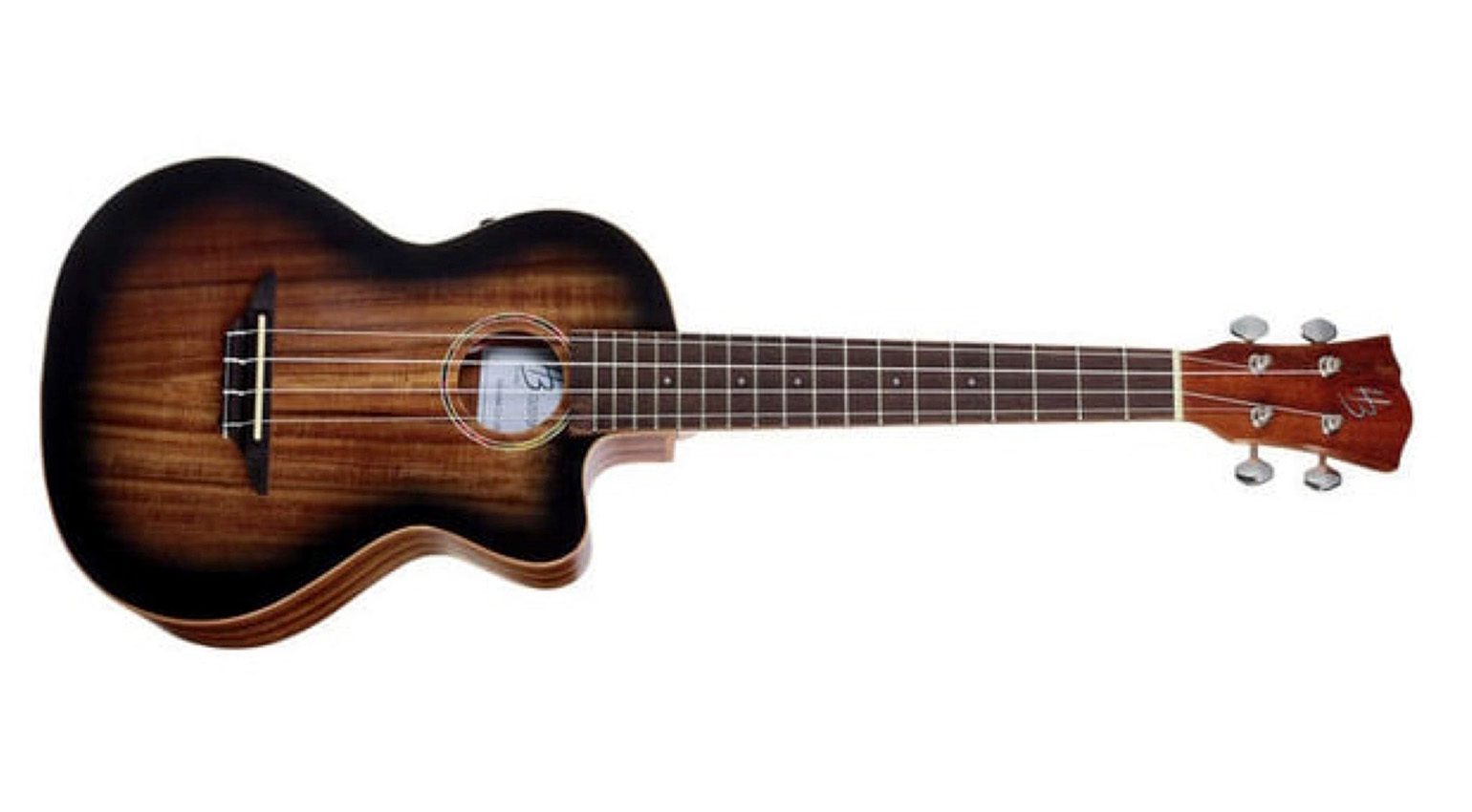
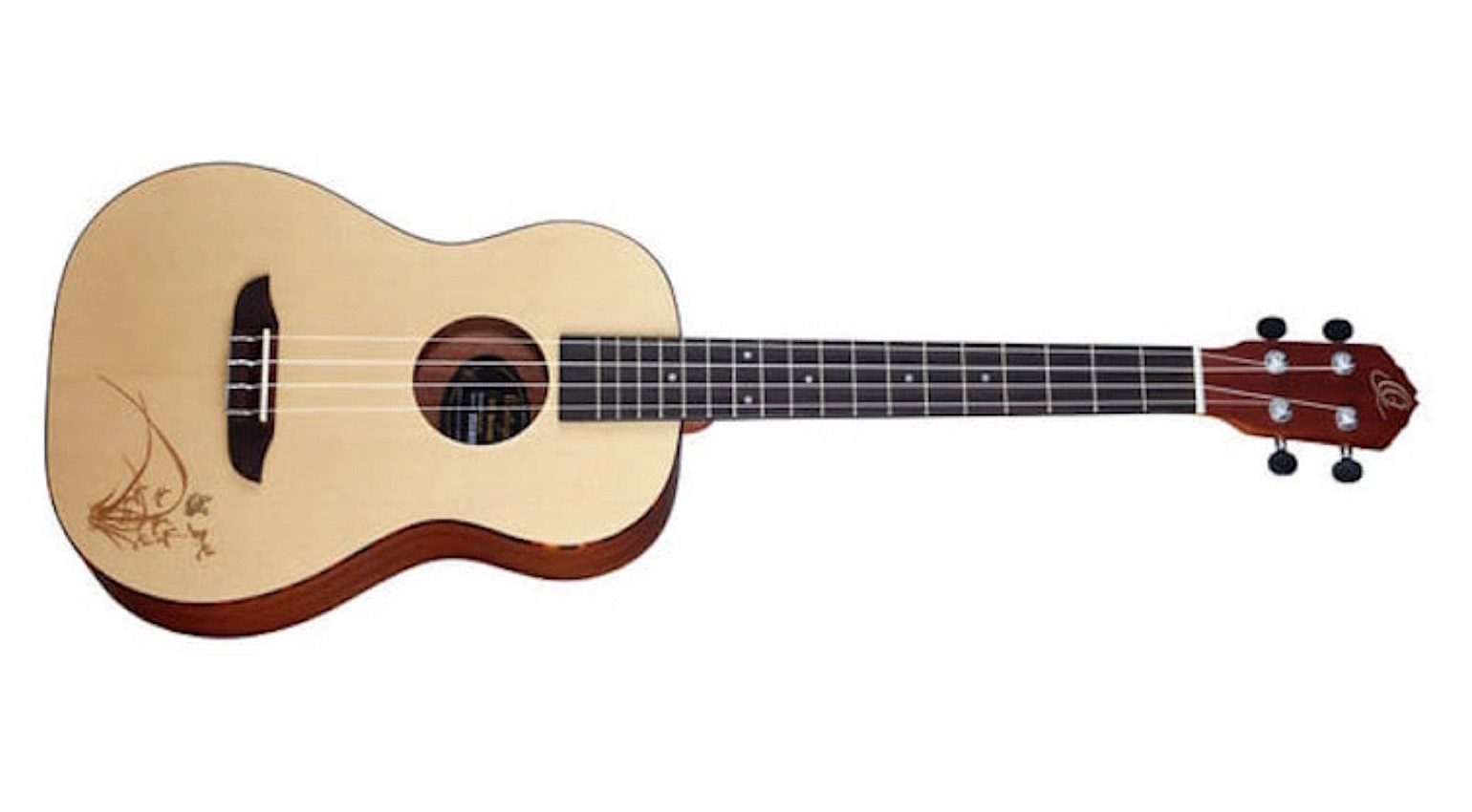



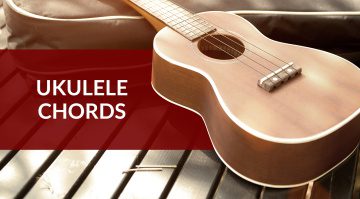
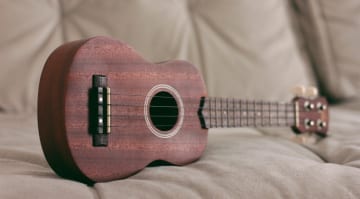
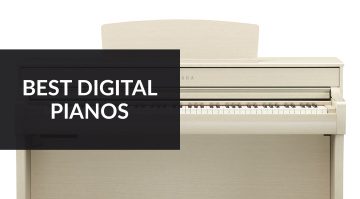

Literally no-one knows what the word ‘ukulele’ really means. ‘Jumping flea’ is simply one guess amongst many.
bollocks, everyone knows that, just google it… the thing that nobodies knows is the es3 modification of the ukuleles.